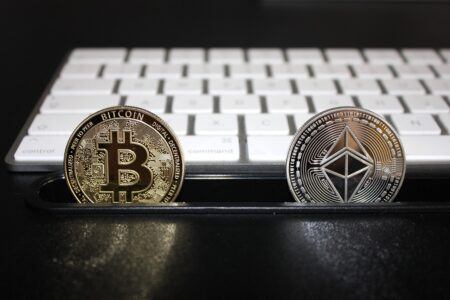Over the past week, Facebook revealed long-anticipated plans for its Libra stablecoin, popular Bitcoin sceptic Nouriel Roubini aligned with crypto purists on whether Libra is actually a cryptocurrency, Bitcoin maintained its bullish momentum to reach a new yearly high, and an auditor’s report found QuadrigaCX now-deceased CEO lost as much as 21,000 BTC of user funds in speculative trading.
Facebook releases the Libra whitepaper
There’s a new (albeit familiar) player in the crypto space. After more than a year of speculation, Facebook has releasedthe whitepaper for its much-anticipated move into blockchain: The ‘Libra’ project.
Regulators voice concerns on Libra
Regulators in several major jurisdictions have wasted little time in voicing their concerns around Facebook’s crypto plans. Most notably, law-makers in US and France have said the proposal should be shut down.
Algorand completes $60 million private sale
Algorand, the brainchild of respected cryptographer Silvio Micali, completed its token sale. Using a Dutch Auction bidding mechanism, the tokens were sold at $2.40, giving the project an implied market cap of $24 billion – nearly on a par with Ethereum.
The long take
The world of crypto and blockchain has had what could well be written in the history books as its “Netscape Moment”. Often dismissed by the mainstream as a speculative bubble with little evidence of real utility for regular Internet users, the “normies” are paying attention again. The release of the Libra whitepaper has initiated debate around the purpose and vision of cryptocurrencies, and whether Facebook’s venture can take the space further along the path towards a truly global and open financial system.
In its whitepaper, the company – through its newly created Libra Association – outlines the various aspects of the network, including the native currency, its consensus mechanism for agreeing on the state of the ledger and ongoing plans for governance. Set to launch in 2020, the goal for Libra, according to the paper, is to create ‘A stable currency built on a secure and stable open-source blockchain, backed by a reserve of real assets, and governed by an independent association’.
There’s a lot to unpack in that sentence, so let’s go through the various elements:
- ‘A stable currency’; The currency will be pegged to a basket of low-volatility assets. This means it won’t be pegged to any one asset (e.g. the US dollar) but should achieve rough parity with the world’s major currencies by using a blend of assets including bank deposits and short-term government securities to avoid the risk of price spiking up or down.
- ‘Built on a secure and stable open-source blockchain’; The blockchain will use a consensus protocol called LibraBFT, whereby transactions will be validated by a network of 100 participating nodes. Those nodes will be run by organisations typically trusted by the general public, including payments networks like Mastercard, Visa and PayPal, tech companies like eBay, Uber and Spotify, and telecoms companies like Vodafone. Facebook will also be a validator with no greater privileges than the other members.
- ‘Backed by a reserve of real assets’; The currency will be backed by LibraReserve – a reserve of real assets, so that each Libra coin that’s minted is backed by its equivalent value in the reserve. The funds for this reserve will come from the participating members, who’ve each contributed $10 million towards the reserve. The interest from the assets will be used to pay rewards for validating transactions.
- ‘Governed by an independent association’; While Facebook will play a leading role in the initial stages, the goal is for the blockchain to be governed by an independent foundation run out of Switzerland (similar to how the Ethereum network functions). The members of the Libra Association will be those running the validator nodes. They will each have equal power and any motion to change or upgrade the protocol must be endorsed by two-thirds (a ‘supermajority’) of the members.
The announcement included the launch of Calibra, a digital assets wallet enabling Facebook user to access and manage funds. Calibra will be integrated across Facebook’s suite of applications, including WhatsApp, Instagram and Messenger, allowing users to transfer funds and pay for products and services.
In addition, Facebook is developing its own blockchain scripting language called Move, which developers can use to program smart contracts (similar to Solidity in Ethereum). While these capabilities won’t be available at launch, it opens the door for a range of applications to be built on top of Libra in the future.
The venture will no doubt attract critics from both the traditional finance side (note that no banking institutions are participating) as well as from the crypto purists. Already, regulators in the US and France have voiced their opposition to the proposed venture. Expect central banks and other financial institutions to have their say on the matter soon.
Regardless, it’s clearly a clever move from Facebook and is aligned to the company’s modus operandi of continually seeking to disrupt its own business model as well as those of industry incumbents. In this instance they’ve cherry picked desirable attributes of Bitcoin and Ethereum, added a stablecoin to combat the volatility that’s associated with existing cryptocurrencies, and have used a consensus framework based on trusted nodes in order to achieve the sort of scalability you’d need for 2.4bn+ monthly active users.
Whether Libra will become a social-good venture helping to bank the unbanked in developing nations or a blatant data grab by a company with an already disproportionate global influence remains to be seen. In any case, if anything is going to take crypto to the mainstream (at least in the shorter term), this could well be it.
Tweets of the week
Many want to pit Libra vs. Bitcoin. In my mind these two are not in the same category. BTC is a decorrelated (investment) asset. Libra is designed to be a stable medium-of-exchange. I have been, and remain a fan of BTC, but for very different purposes.
— David Marcus (@davidmarcus) June 19, 2019
Libra has many characteristics of money.
Durability
Portability
Divisibility
Fungibility
Stealyourdatability
Medium of Exchange
Value storage
Unit of account— Libra Parody (@LibraReserve) June 19, 2019
How's that Bitcoin chart overlaid on the tulips and South Sea bubble chart doing?
— nic carter (@nic__carter) June 20, 2019
Don’t miss








